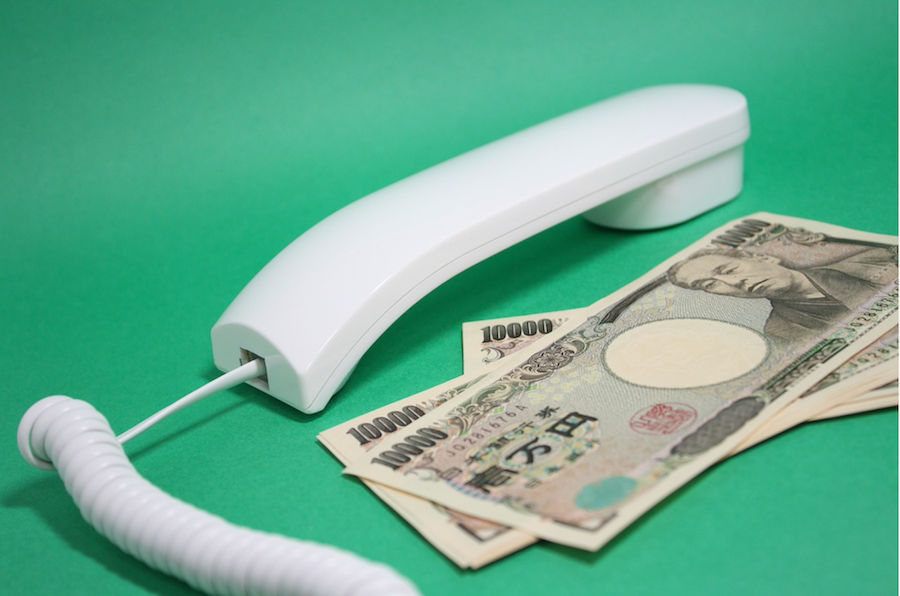Unravelling the Mystery of Domestic Remittances in Australia
GPT_Global - 2023-06-04 04:00:01.0 162
Are there any restrictions on where I can send domestic remittances in Australia?
Remittances allow people to send money internationally, but what do you need to know about sending domestic remittances in Australia?
Domestic remittances are subject to the same laws and regulations as international remittances. This means that you may need to submit additional forms when transferring money within Australia. Depending on the amount of money you are sending, you may also need to provide evidence of the source of the funds.
You can usually perform domestic remittances with banks, credit unions, or through online transfer services. It’s important to consider all your options carefully. Different services can offer different terms, fees, and transfer times.
When it comes to restrictions, there are often limits on the amount of money you can transfer with any given provider. Additionally, some providers may have restrictions on where you can send money within Australia. For example, some domestic remittance services may not be available in certain rural areas.
When sending domestic remittances in Australia, it’s best to understand the limitations of a service before using it. You may want to research the provider’s fees and turnaround times to ensure that you can get your money where it needs to go quickly and affordably.

Is it safe to send domestic remittances in Australia?
Australia has been home to an increasing number of domestic remittance services providing efficient and secure money transfers within its domestic banking system. Domestic remittances provide a convenient way to transfer funds from one Australian account to another, without having to incur foreign exchange fees or time-consuming bureaucracy.
For those intending to send domestic remittances in Australia, there are several security measures that should be taken. All remittance companies should be registered with the Australian Securities and Investments Commission, or ASIC, a government body responsible for the regulation of financial institutions. Furthermore, it is important to ensure the remittance company is secured against online fraud and that all transfers are encrypted and protected by the latest security protocols.
In addition to the security measures mentioned, remittance companies should offer a money back guarantee or insurance to protect customers against unforeseen events or fraud. This will provide extra assurance and peace of mind to those sending money domestically in Australia.
Finally, customers should take the time to read reviews or testimonials from previous users of a remittance service in order to get a better understanding of the quality of service offered. That way, you can make an informed decision when determining the best remittance service provider for your needs.
In summary, when it comes to sending domestic remittances in Australia, customers should always check that the remittance company has the necessary registration and security measures in place. Further, customers should look for reviews and consider a money back guarantee or insurance before choosing which remittance company to use. By taking these steps, customers can rest assured their money transfers are safe, secure and protected against fraud.
Can I receive domestic remittances in Australia from another country?
One of the most important services that remittance businesses can provide is domestic remittances within Australia. It is a convenient and secure way for people to transfer money from one country to another. With the rise in popularity of online banking, domestic remittances are becoming more popular in Australia.
When you use a reputable remittance company, you can be sure that your money will reach its destination quickly and securely. The amount of money that can be transferred varies depending on the company, but it is usually quite high. In addition, the fees associated with domestic remittances are typically lower than those associated with international transfers.
If you are looking to receive domestic remittances in Australia from another country, you will need to choose a reputable remittance provider. They will provide you with all the necessary information and advice regarding the process as well as the fees and taxes associated with receiving money. Additionally, they will ensure that the money reaches its destination safely and securely.
Before you decide on a remittance provider, it is important to research a few different companies in order to find the best deal. You can do this by comparing fees and other services offered. Once you have chosen a service, all you need to do is fill out the necessary paperwork and provide proof of your identity. Then, the remittance provider will handle the rest.
Receiving domestic remittances in Australia from another country is simple and safe when using a reputable remittance provider. By doing research and comparing services and fees, you can ensure that you will get the best deal for your money.
What methods of domestic remittances are accepted in Australia?
.Australia is a country that relies heavily on remittance payments for economic stability and growth. With the wealth of methods available, it makes it easier for families and businesses to transfer money quickly and securely. In this article, we’ll discuss the various methods of domestic remittances accepted in Australia.
The most popular method for making domestic money transfers in Australia is through banks or credit unions. These institutions are reliable and typically offer competitive exchange rates and low fees. Transferring funds online through a bank's secure website is easy and requires minimal setup. The downside to this type of remittance is that it often takes more time than other options.
If you're looking for a faster option, you can use an online money transfer service like Paypal or Venmo. These services allow you to send money quickly and easily and they often have lower fees than banks. The convenience of these services makes them popular with people who need to send money quickly and easily.
You can also opt for a wire transfer, which can be done through your local bank or a third-party provider. This method is generally more expensive than other options, but it usually offers the fastest way to move money. It also has the benefit of being secure and not relying on the internet for its transactions.
Finally, prepaid cards are another popular choice for domestic remittances in Australia. With a prepaid card, you can load funds onto the card and then use it to make payments or withdraw cash from ATMs. This is a convenient option for those who don't have a bank account, or who want to keep their finances separate from their main accounts.
The methods of domestic remittances accepted in Australia vary, depending on the institution or service being used. Be sure to research the different options to find the one that best fits your needs and budget. With so many options available, you’re sure to find a way to safely and securely send and receive funds within Australia.
Are there any risk management procedures put in place for domestic remittances in Australia?
for display.The remittance market in Australia is a huge industry, with millions of dollars exchanged daily. While there are many benefits to domestic remittances, it is important to put risk management procedures in place to ensure the safety of those involved.
Domestic remittances can present a number of risks, ranging from financial loss due to currency fluctuations, to security and fraud risks. Having the right risk management procedures in place can help protect customers against these risks.
At iRemit, we take risk management very seriously. We have implemented rigorous procedures to ensure that all domestic remittances are secure. Our comprehensive risk management system includes monitoring tools, automated checks, and user verification processes.
We also use advanced encryption technology to protect customer data from unauthorized access. Our secure online payments ensure that sensitive information is kept safe during transfers.
By implementing these risk management procedures, we can ensure that our customers have a safe and secure experience when sending and receiving money domestically. So, when it comes to domestic remittance services, you can trust iRemit to keep your money safe.
Are there any benefits to sending domestic remittances in Australia?
Sending domestic remittance in Australia has many advantages. First of all, it is cost-effective and convenient. Unlike international transfers, domestic remittances are cheap and easy to complete with low transaction fees.
Domestic remittance also allows for real-time payments. With the rise in digital payments, you can send money instantly using your laptop or mobile. You can even check the status of your payments in real-time and be sure that your money has been successfully transferred.
Furthermore, customers don't need to worry about exchange rates as all domestic remittances are done in the same currency. This makes it easier for customers to understand their costs of transferring money, allowing for better budgeting.
Finally, sending domestic remittance in Australia is secure. Advanced security protocols and encryption technology ensure that customer information is kept confidential and secure throughout the process.
Overall, sending domestic remittance in Australia has many advantages including cost-effectiveness, real-time payments, fewer exchange rate issues, and greater security. By partnering with a reliable remittance company, customers can take advantage of these benefits and enjoy a hassle-free money transfer experience.
What additional costs may be associated with domestic remittances in Australia?
Domestic remittances have become increasingly popular in Australia, allowing people to quickly and securely transfer money from one bank account to another. However, there are a few additional costs associated with this type of transaction that you should be aware of.
The first cost is a flat transaction fee. Depending on the financial institution you are using for your domestic remittance, this fee will vary. Most banks charge a flat rate fee of around $10–20 per domestic remittance, but some may charge even more.
The second cost is any exchange rate fees associated with the remittance. If the currency you are sending or receiving is different than your local currency, you may have to pay a fee to convert the funds. Additionally, you should keep an eye on exchange rate fluctuations when making a domestic remittance as it can affect the final amount you receive or send.
The third cost is any hidden charges. Make sure to read the terms and conditions of the financial institution you are using carefully. Some institutions may include additional fees for things such as transaction processing or back-end operations.
By being aware of these additional costs, you can ensure that you are receiving the best value for your domestic remittance. Contact your financial institution for more information about fees and charges associated with domestic remittances so you can determine the best option for your needs.
About Panda Remit
Panda Remit is committed to providing global users with more convenient, safe, reliable, and affordable online cross-border remittance services。
International remittance services from more than 30 countries/regions around the world are now available: including Japan, Hong Kong, Europe, the United States, Australia, and other markets, and are recognized and trusted by millions of users around the world.
Visit Panda Remit Official Website or Download PandaRemit App, to learn more about remittance info.

